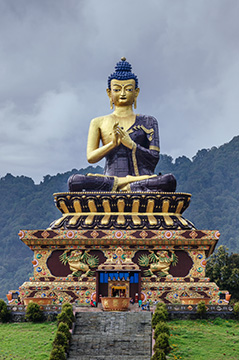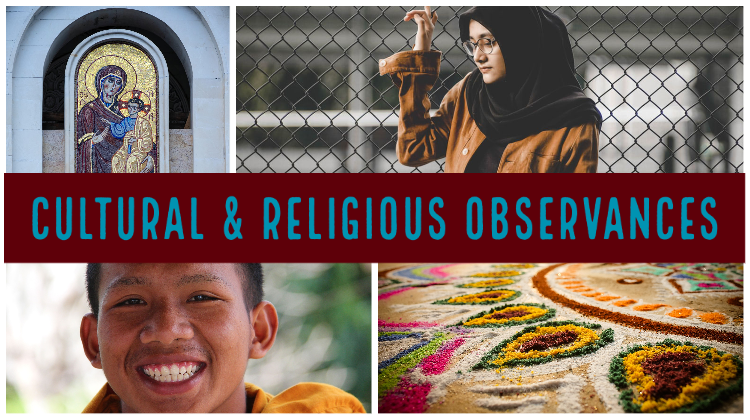Bodhi Day

Culture/religion: Buddhist
Date: December 8
Bodhi Day is one of the most significant events in the Buddhist faith, commemorating Buddha’s enlightenment. Bodhi means “awakening,” or as translated in English, “enlightenment.”
As the story goes, the historical Buddha was a prince named Siddhartha Gautama who decided to give up his privileged life to seek peace of mind. After six years of frustration he sat under a fig tree and vowed to remain in meditation until he fulfilled his quest. During this meditation, the prince realized enlightenment and became Buddha, or “the one who is awake.”
With varying Buddhist traditions in different regions, Bodhi Day has a variety of names and dates of observance. Theravada Buddhists celebrate it as Vesak which is observed by a lunar calendar with changing dates, and usually falls in May. Tibetan Buddhism observes Buddha’s birth, death and enlightenment all at the same time, calling it Saga Dawa Duchen. Mahayana Buddhists celebrate the events on three different holy days.
Bodhi Day is observed quietly with meditation or chanting, and an informal commemoration may include bodhi tree decorations or simple tea and cookies.
Sources:
An Overview of Bodhi Day, LearnReligions.com
Human Rights Day

Culture/religion: World observance
Date: December 10
Human Rights Day was adopted by the United Nations General Assembly in 1948 and is celebrated each year on December 10.
The Universal Declaration of Human Rights (UDHR) is a milestone document drafted by representatives with varying legal and cultural backgrounds from all over the world. This document sets forth a common standard of achievements for all peoples and all nations and the fundamental human rights to be universally protected.
Sources:
Human Rights Day, United Nations

